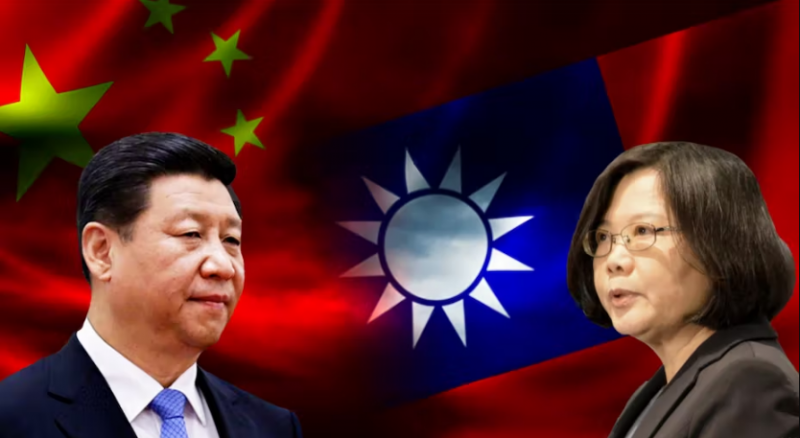
Taipei: Including Taiwan in the fold is the only way Beijing can achieve long-term peace with the island and prevent Taiwan from being invaded by a foreign power, according to a new book authored by prominent Communist Party figures.
The book had an article which said, "It is only through the complete reunification of the homeland that the compatriots on both sides can be completely freed from the shadow of civil war and jointly make lasting peace in the Taiwan Straits and can share." Huh." The document serves as the party's official justification for last month's constitution change.
The article continued, "We can only defeat efforts by outside forces to engage China and protect national sovereignty, security and development interests by uniting with Taiwan and preventing Taiwan from being re-occupied by foreign countries."
Also Read: Interview: CIIE presents huge opportunity for Africa to diversify export base -- Ethiopian scholar
The hidden danger of "isolating China" by Taiwan's independence forces can only be eliminated by unification, it further said.
The article served as justification for the party's choice to include "opposition and inclusion of Taiwanese independence" in its constitution last month, the first time such an explicit reference had been made to ease tensions surrounding the island. built into the text.
About 20 prominent party thinkers contributed to the question and answer book of the 20th Party Congress Constitution Amendment, led by three current members of the seven-member Politburo Standing Committee: Wang Huning, Zhao Lizhi, and Ding Zhuxiang, President Xi's Chief of Staff Jinping.
On 28 October, the Party Building Books Publishing House, a division of the Central Organization Department, the party's primary body for hiring and educating party members, released the book.
US House Speaker Nancy Pelosi's visit to Taipei in August sparked increased hostility and loud rhetoric from Beijing about the situation in Taiwan, but it is unusual for the Communist Party to be so clear in its justification.
Although the book did not specify how Beijing would unite with Taiwan, Xi said in his work report presented at the 20th Party Congress last month that Beijing would do everything possible to unite Taiwan peacefully but not using force. will not. will never leave.
The most recent article specifically mentions the US, claiming that "out of a supremacist and Cold War mindset," some forces in the US see mainland China as a main strategic rival and long-term challenger.
Also Read: China's ICT giant launches fund to develop innovation leaders in Zambia
"These forces make every effort to control and suppress China, using Taiwan to subdue China," the statement said. The US claims it favors a one-China policy rather than Taiwan's independence, but some forces are at work within the country. in the opposite way. They strengthen official ties with Taiwan, plan military sales, and strengthen military ties between the US and Taiwan."
Stating that the mainland is "pressurising," "threatening," and "unilaterally changing the status quo," the article claimed that these forces were using Taiwanese independence forces to stir up unrest in the Taiwan Straits. were doing for supported their efforts. According to the authors, these works were destined to fail.
The article stated that "Taiwan independence" was going against historical trends and was a dead end, while "unification" was the right course of action.
When Pelosi visited Taiwan in August, Beijing considered it a violation of its sovereignty and relations between the US and China fell to their lowest level in fifty years.
Beijing responded with harsh condemnation and days of live-fire drills around Taiwan, including dozens of incursions along the midline in the Taiwan Strait, a de facto border that stood by that time. Beijing had repeatedly warned against Pelosi's visit.
Beijing views Taiwan as a part of its territory that must be reclaimed if necessary using force. Most nations do not recognize Taiwan as an independent state, including the US. However, Washington opposes any attempt to capture the island by force.
Also Read: Update Xi meets German Chancellor Olaf Scholz
Since the party's founding in 1921, its constitution has been changed at each National Congress. It now includes the political philosophies of every major party from Mao Zedong to Xi, and the 1982 amendment includes personality defects.